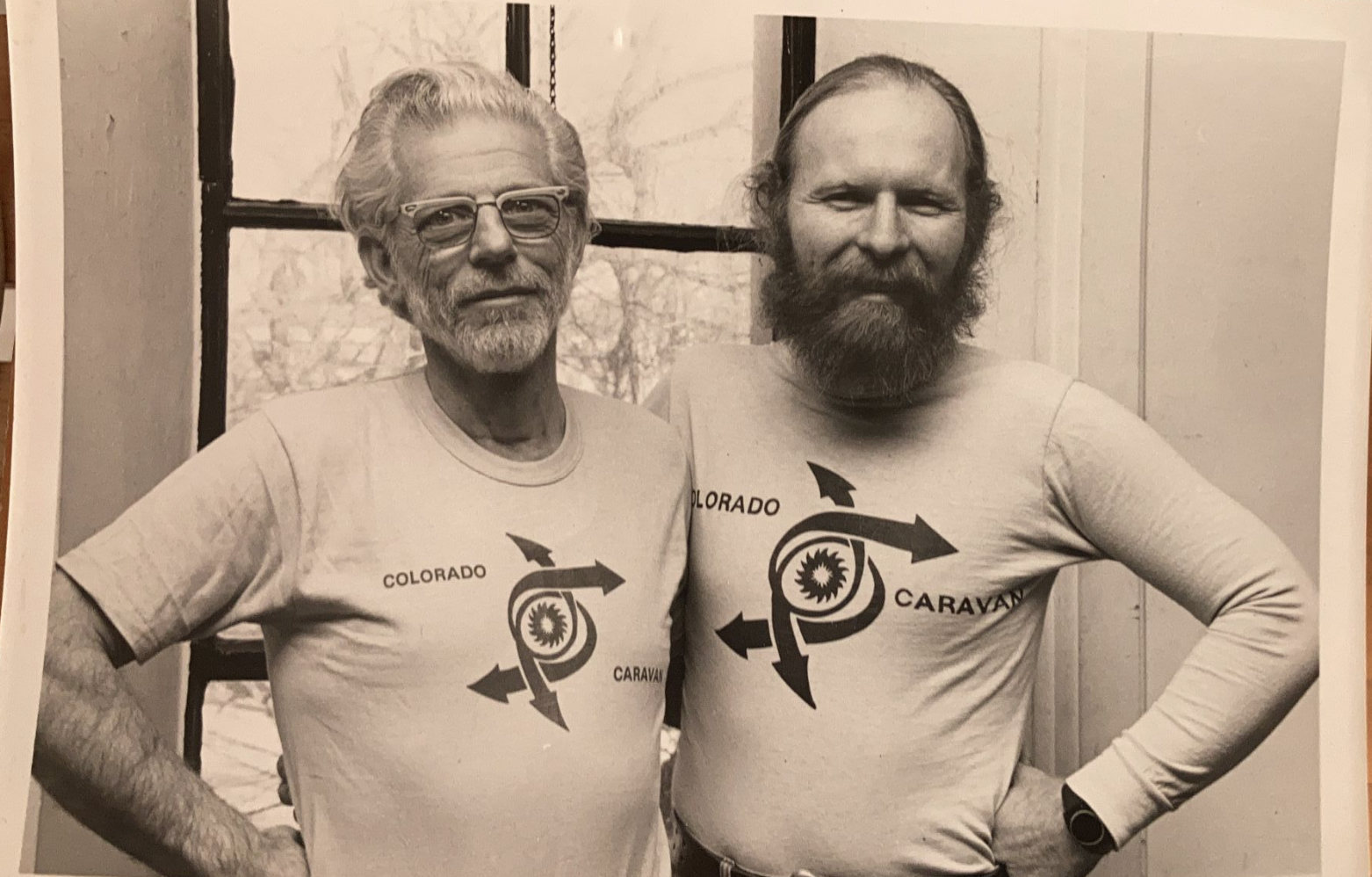At times in my life I’ve received a Great No that upended my life and created an unimagined future. At other times a little No turned the situation in such a way that everyone benefitted. We often think of a Yes as a door opening, and maybe a No as a closed door. But sometimes a No becomes a Great Yes further in our journey. I’m offering a challenge for this Thanksgiving: give thanks for the blessings of the Noes in your life.

Photo by Priscilla Du Preez, Unsplash
Sometime early in my marriage my husband’s mother requested that for the first part of the conversation around the table at Thanksgiving each person would say thanks for something specific from the past year. It could be a thanks to a person at the table or for something specific. Even the littlest child would participate, and sometimes their thanks would move the rest of us to tears. As there got to be more and more people at the table we stopped doing this, much to my regret.
This year I’ve found sustenance in thinking about times in my life when I received a resounding NO that upended my life and created an unimagined future. When the NO became a YES I would feel so thankful for the unexpected outcome, better than my first dream. Other people in my life have this experience also. I thought I would share a few of these, and then ask you to tell us about your own experiences.
The Teaching No
I come from generations of women who were teachers, and married a man with a similar inheritance. I was the first of these women to gain a graduate degree: an M.A. in Medieval Literature. My dream was to go on for my Ph.D, get a job teaching Chaucer and Anglo-Saxon poetry at a University, and write articles for impressive publications. When I completed my M.A. my husband still had classes to finish, so I applied to teach at a nearby junior college, thinking how glad they would be to have me. When I didn’t hear anything, I made a phone call to follow up.
“No, no. I’ve seen your resume. It’s somewhere in this stack. You see, I have about fifty applications. At least ten of them are people with Ph.Ds and teaching experience. Just a few years ago I’d have been delighted to hire you, but… I’m afraid I can’t offer you a job at this time.”
I did get a job teaching part time for pennies in a volunteer Adult Basic Education program, where I learned what a basic education could do for an individual: certify in their trade, get a job, speak English in a new country, learn to read…. And eventually my husband graduated, we moved to a different state, and I began to teach at two-year colleges as an “adjunct” professor. I was assigned 7 am and 7 pm classes plus one at 10 am and another at 1 pm so that two days a week I had four preps. I was paid only for classroom contact time. I did this for three years with small children in my life. Then I spent one summer sitting in my garden on the dirt, sorting out stones. I realized trying to teach was a Big No. I looked for a “job that would pay good money,” and took a job answering phones at the utility company for more money than I had ever been paid. Plus my first paid vacation days. And, when my husband became desperately ill, I was handed a two-inch packet of medical bills with $0.00 due on the last page.
What’s interesting is that three years later I was in the company’s “Training and Development Department” and teaching adults about things like Conflict Management, Supervision, and Corporate Strategy. Over several years I developed a style of asking the class participants questions, and after discussions just adding anything they didn’t cover. I was facilitating their conversation more than standing up and telling them anything. Then the company trained me in a new field of consulting – Organization Development (O.D.). Organization Development involves some teaching but is much more group research and facilitation that allows adults to teach themselves. I proved to be born to be in this field, even though it didn’t exist when I was born. A Great Ten Year No… that led to the Great Yes.

Photo by Gemma Evans, Unsplash
A Little No
Sometimes a little No can serve like a shock and something profound is learned. For example, there was a woman at church who was very busy doing holy things all the time. We connected over projects at times, but had no natural affinity for each other. Standing outside the church after a meeting I was grousing about having to go to a new training for Lay Eucharist Ministers after having been one for ten years. She turned to me and said sharply, “Sometimes we don’t get to choose our teachers.” I felt the truth of what she said in my bones. I heard my own complaint with new ears. I sounded like, and was acting like, a spoiled brat. Upon reflection, I realized I had NEVER chosen a life lesson teacher. I learned to be open to the lesson however it arrived, and thankful to any who offered wisdom. Listen and learn.
Robert Bly and the Bad Father No
Poet and translator Robert Bly was an early leader in the Men’s Movement which paralleled the Women’s Movement of the 1970/80s. Robert had a group exercise where he would point to a corner and assign it to “Those of you whose father was absent – either not there or at work all the time,” and another corner, “Those of you whose father abused you,” and a third, “Those of you whose father was a good working man but boring,” and others. People would sort to their assigned part of the room. Then Robert would say, “Now, talk to each other and find out what gifts your father gave you.”
An hour later people would emerge from these groups less angry and frustrated, holding the gift in their healing hearts. Then Robert would say “Try to forgive your father. Perhaps tell your father, Thanks! And be really specific about what you are thanking him for.” Many went on as an adult to find a neutral or more positive relationship with their father, even if the man had passed away. Obviously this exercise worked for men’s mothers, and for women as well with their mothers and fathers.
Never Work Harder than Your Client
Never Work Harder than Your Client is a phrase Organization Development people say to each other. It means exactly what it says. A client calls you to explore a situation with the object of “teambuilding” or “improving productivity.” In the most blatant of these encounters the client wants you to uncover how “bad” the group or underling is, and give them enough information to fire the individual(s). Your Big No to the client comes when you (in 95% of the time) discover the real problem is your client. The client, however, seems unable to learn the behaviors that will enhance or correct the situation they wanted you to explore. Nothing is gained by you working harder. Much is gained by working with the client’s employees on how to manage change. I would ask employees to list the skills that they all had and then list specialty skills that only a few of them had. I would give this list to the manager, while employees developed their resumes. In pairs, employees would then practice querying each other about the work they do. This helped them both respond to the manager when asked and gave them interview skills.

Photo by Visual Karsa, Unsplash
Turning Back, the Doors were Open all the Way
Growing up my grandmother would say, “You can go forward, backward, or stay in the same place. Some people stay in the same place their whole lives.” One Great No that became a Great Yes for a friend was when, after many months of going to interviews, exploring different companies, trying with a great many good skills to be promoted, she dreamed this dream:
I am walking down a long hallway, and all the doors closed – the ones on the side, and in front of me. I open a door but it just opens to another closed door. Then I turn around, and the hallway is full of light and all the doors are open! I walk back, along the direction I came, and at the end there are people cheering.
She interpreted this dream as going backward to the field she graduated in, and getting a good job in that field rather than the current one. She got a job immediately in a very good company, and was promoted often.
We are brought up to believe “ever onward, ever upward” and that not progressing can be translated into “retreat” and “failure.” It is often difficult to accept the No and go backwards to a different fork in the road. When we open ourselves to listening to No, often we discover people among our friends and family who have “given up” and “started again.” The choice of going “backward” can be not only about work but also about a marriage or orientation or multiple other endeavors.
Learning to Say “No” so Gracefully the Receiver Says “Thanks!”
The flip side of giving thanksgiving for the Noes in our lives is to be able to say No gracefully. In college I said No to two offers of marriage from very different but both very fine men that I liked a lot. In each case I could not imagine living the life they were planning. Remember that I was going to teach Medieval Literature at a University. That didn’t fit with either “ranch” or “lawyer’s” wife. In both cases I did a very bad job of saying No and hurt both of them. I didn’t know how to say No gracefully. They didn’t deserve to be at the raw end of my learning curve which was far longer than from sophomore (first offer) to senior (second offer) in college.
For me the best preparation for saying No involves imagining my role is reversed with the other person, and pretending they are saying No to me. How would they arrange it? What words would they use? One certainly follows the general rules of giving any feedback: never in public, only the people involved, begin with and end with “I Statements” – this isn’t about them, it’s about you. I could have said “I appreciate all the time, energy and caring you have put into our relationship. I am not ready to marry anyone, even so fine a person as you are. And since I may never be ready, I don’t want you to wait. Please let go, and get ready for the person who will be able to be beside you for the rest of your life.”
Final Thought
Maybe at Thanksgiving I’ll pose this question at the table: “Tell us all about a time when someone said or something became a Big No, and then the No turned out to be such a good thing you want to give thanks for it.”
Questions for you below. Please post Comments at the end of the blog, or send an email. Add a question and answer it if you like.
-
- When have you received a No that opened into an amazing opportunity?
- When have you said No successfully? What made the No acceptable to the other person?





I really loved this blog. It was so interesting and full of vibrant moments and comments. Thank you! I don’t have anything to offer at the moment being focused on pressing things, but I am very glad I read the whole thing. Wonderful! I hope you have had a wonderful conversation around your Thanksgiving table.
One big NO for me was after I received an MA in Theatre, specializing in movement for actors, and needed a job. I applied for a position at Swarthmore College teaching dance. I was invited to teach a class that went very well. All the participants, as well as the observer, said I was the most interesting candidate. The last hurdle was meeting the Dean. She and I talked amiably, and I hoped I’d demonstrated my knowledge of dance and dance history effectively. At the end of the interview she said, “I’m going to do you a big favor. You’re obviously a talented and creative woman, but I don’t think you want to teach dance even though you are well-qualified. Am I right?” I stared at her, unable to lie. Reluctantly I admitted, I wanted to teach movement for actors.
She was warm and caring and supportive. “I’m sure you’ll find a way to do what you want, even if you have to create the opportunity.” I left feeling both relieved and worried. How would I support my son with no real job. Months later, the man I’d worked for as a scholarship student at a summer dance program, who became Chair of the Theatre Department, offered me a part-time job teaching public speaking. I accepted. It became a full time job where I taught movement “for love.”
I created a new field, Movement for Actor, and transitioned from public speaking to teaching movement, creative drama, and Children’s Theatre. I wrote and directed plays for children performed throughout the State of Delaware. The Dean’s NO enabled me to find a way to teach what I loved in a way that allowed me to be creative and imaginative. I went from being a part-time instructor to a full professor (with only an MA) in twelve years. I’ve often thought about the Dean–her wisdom, and her concern that I teach what I loved.
Nancy, your Great No story illustrates the idea perfectly. Your deep desire might have become buried under daily routine, the endless need to just get the work done. You might never have created the gifts you brought into the world. Thank you for sharing this powerful example from your life.